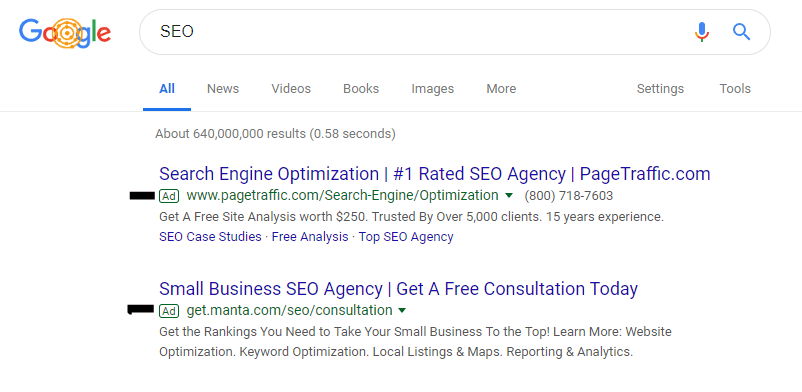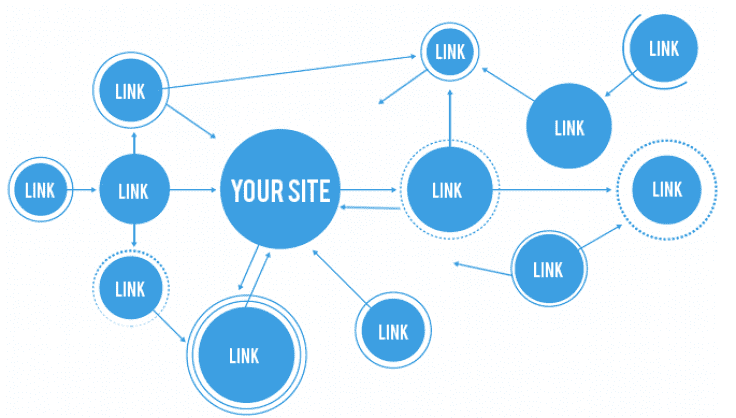SEO Guides, Tips & More!
Learn from Our Experience
SEO – Frequently Asked Questions
Search engine optimization (SEO) is a broad topic that spans a wide variety of topics such as keyword research, content marketing, link building and more. Whether you are new to the world of SEO or a seasoned pro, odds are you have questions about how these elements tie together to help Google and other search engines rank the content for various keyword terms. The more time, effort and energy invested into these areas will almost always lead to a positive outcome. The challenge is that search engines are changing how they review, interpret, evaluate and index content. In fact, in 2019 alone Google has had several minor updates and a suspected core update just last month. Given the constant state of change, it’s important to be looking for information that expands your knowledge and understanding of the field.
Since it’s almost impossible to answer every SEO question in a single blog or even a single website, I want to provide information on the essential concepts, techniques and building blocks so that everyone who visits the blog will learn something new or discover a new resource to help further their practice and knowledge.
Let’s start with some basic ones:
SEO
What does SEO stand for?
It is an acronym for the term Search Engine Optimization. Essentially, someone is working in the field of SEO when they engage in on-page or off-page tactics designed to increase the visibility of a website on the Google (or other sites) search engine results page (SERP).
What is PPC?
This is another acronym for the term Pay Per Click advertising. Essentially, this is when someone uses Google Ads or another pay platform which allows their website to appear near or at the top of the SERP. While these ads are almost always designated as such, it does allow a website to quickly appear at the top. Since money is the driving factor behind PPC when you stop paying Google stops showing your content. As an aside, while I have made a bit of a joke about PPC, it’s quite an effective tactic under the right circumstances.

Where Can I Study SEO?
The truth is there are an amazing amount of paid and unpaid resources available depending on the amount of time and resources you have available. If you are looking general education information and resources in the form of blogs and guides, there is an endless amount of information available online. A few of my favorites include Moz’s Beginner’s Guide to SEO, SEO Pruning SEMRush and The Definitive Guide to SEO. I also personally like the MOZ Academy, HubSpot, and while they don’t offer any training anymore, the Search Engine Marketing Professionals Organization (SEMPO) is an excellent source of information and networking for those who want to connect with others in the industry. Finally, there is an amazing book in circulation, the Art of SEO, which provides comprehensive information on a variety of SEO topics and has been a valuable resource for our practice over the years.
What’s the best SEO Software?
Well, that’s a tough one because it depends on your needs and program goals. However, we have used and like Moz and SEMRush for campaign management and analysis. Spyfu and ahrefs are excellent for linking building, competitive link analysis and all thinks links. For keyword research there are amazing software tools available for both free and by subscriptions. Ubersuggest is a great tool that is free, but we also like Google Search Console (didn’t know Google has a keyword research tool, well not exactly), and Wordtracker. These are all similar in terms of what they offer, but presentation and various features differ. Most have a free trial period, so I suggest checking them all out to see what fits your needs and personality best.
What is On-Page SEO?
This is the term that refers to the practice of adjusting to variables on the actual web page to influence Google to rank it according to the desired keyword terms or phrases. Examples of on-page SEO tactics include alt txt, meta title, heading tags, keyword placement, internal linking and URL sculpting. This is the type of SEO that most marketers are familiar with because it appears to be the most commonly discussed amongst (at least my peer group) marketers.
Keyword Research
What is Keyword Research?
This is the process of determining the best keywords to target for your business based on focus and content. A site that has not conducted keyword research may be optimizing for low performing or irrelevant keyword terms. In other words, terms that will not result in a high number of clicks. As a result, keyword research is unimportant to understanding what the best terms are to focus efforts around.
How do I Conduct Keyword Research?
While keywords appear to have taken a back seat to quality content in recent years, the short answer is yes; Keyword research is important for all businesses because the results provide insight into where the most qualified prospects and customers will look to find your services. Most of the tools that have been discussed in this post offer some method of keyword research, and provide useful insights into where your company should focus its efforts. To get started, enter broad terms into your selected tool and generate large lists of terms which have some level of relevancy to your services, product or target audience. When reviewing results be sure to carefully assess the keywords which have a high level of difficulty and those with a lower level. Begin the process of pruning to find the ones that best fit with your intention, efforts and website. It’s complicated, but there are many resources out there that can guide you through the process.
Where Do I Enter Keyword Information?
Once you have selected the keyword terms you want to target, the terms should appear in multiple places on a post or page. This includes in the title of the content, URL, meta title and meta description to name a few. Depending on the content management system (CMS) your company is using, the information will be entered in different places. (Check out the screen capture below for an example using WordPress). Also consider entering the keywords in places in the content that can be tagged as H2, H3 and H4. Please note that randomly placing keywords into various part of a piece of content is called keyword stuffing and will have a negative outcome for your efforts. As a result, when you use keyword terms it’s important they are used naturally and logically in the flow of the content. Who wants to read a blog post that has random terms jammed into various part of the piece? No one, so please don’t take to that practice.

What is Robots.txt?
This sounds super cool like it’s a futuristic place on a website where robots go to hang out. Sorry, this is not true, but it sounds like fun. This is a file on a website which tells search engines what part of the website to index and which parts to avoid. It’s commonly used to instruct search engines to avoid indexing files pertaining to website function, and directs them to index files related to content (those more valuable to users).
What is Sitemap.xml?
It is very similar to what it sounds like. The sitemap.xml file resides in the root directory of a website and is written in extensible markup language (xml). It is designed to tell search engines about all the content on your website, including which content was most recently posted, it’s importance (assigned on a scale of .1 to 1.0) and the date it was last optimized. Depending on your CMS, this function is automatically managed. If you want to generate a xml sitemap for your site there are many online resources to help!
What SEO Techniques are Best?
This is a tough question to answer because it depends a lot on what you have already done with your website. We suggest starting with a website audit to determine where the greatest need is for your specific site. Otherwise, consider techniques like keyword research, link building and on page meta-optimization. If you focus on these essential components, then you will have a great start.
Link Building
What are Backlinks?
These are links that connect websites with each other. If you think about it, the web is composed of links and content. When two or more sites link to each other it shows context and connection. The more links, the more context and connection. As the quality and number of links to page increases, so does its SEO value. In one sense, a backlink is a confirmation that the content on a page is considered to be high value and to have authority. After all, if the content wasn’t valuable then why would anyone link to it.
What is a No Follow Link?
These are links that in fact connect someone to a website but decline to pass link value to the site where the link ends. When a link is tagged as no follow, there is no link equity shared.
What is Link Equity?
Somehow, I had a feeling this question would come up, but I am glad that you asked! Link equity refers to the amount of credibility a link transfers from one page to another. When a link is not tagged as no follow, the link carries link equity (which is usually good for both sites). However, there were many attempts to manipulate Google and other search engines so the no follow classification came into existence. As an example, one person could buy many sites and then link them all to each other giving the appearance they had more domain authority than was actually the case. How link equity is determined is a bit complex, but variables such as value of content and other links are calculated in the equation.
Internal v External Links – What’s that?
Internal links are links from one page on a domain to another page on the same domain. For example, a link from the homepage of this suite to the contact page. An external link is when one domain links to another domain.

What is Domain Authority?
This is a term that refers to the overall level of authority that a website has generated with Google and other search engines. Think of it like the credibility of the domain. The authority of a domain is in large part determined by the level of link equity to that page.
How do I Build Links?
This is a complex topic that has multiple strategies that can be followed. In fact, there are multiple resources on linking building which can outline the process and reveal strategies for attracting links to your website. The best advice I can offer is to develop engaging and custom content, and then find resources including influencers and thought leaders who want to link to your content. Connect with the owners of other sites and share your content with them, including why they would want to link to your content or resources. The more times you reach out and connect, the better your chances of getting the important links. When conducting external link building, it’s a good idea to use tools like Spyfu to see how and where your competitors are garnering backlinks, and approach those sources as well.
Questions Answered?
So, if you were wondering what SEO can do for your business, it’s essential to understand that SEO should be part of your approach. While there is a lot to know and to learn in order to understand how all the puzzle pieces fit together, the good news is that your company can start leveraging some of these tactics to gain ground and realize a return on investment. Besides that, if you love SEO like we do then you can geek out on the latest Google changes and enjoy the steps on the path. Remember, the best way to enhance your SEO is to provide high value content that helps your customers and prospects.

